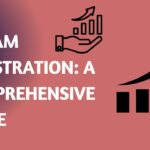A diverse and inclusive workplace culture must include the inclusion of people with disabilities. Every person deserves the chance to demonstrate their qualities and make a contribution to the development of an organization, regardless of their abilities or limitations. However, the road to disability inclusion necessitates a greater comprehension of the difficulties faced by those with disabilities as well as the development of an atmosphere that fosters their success. In this post, we’ll talk about the value of accommodating people with disabilities at work and how employers might do that.
Understanding Disability Inclusion
Disability inclusion is the process of establishing a setting in which people with disabilities are accepted, welcomed, and given the assistance they need to realize their full potential. It represents a dedication to creating an inclusive workplace culture that recognizes and respects the contributions of every person. Disability inclusion is more than simply adhering to the law; it represents a sincere attempt to make the world accessible and accommodating for everyone.
Creating an Inclusive Workplace Culture
Employers can take a number of actions to develop an inclusive workplace culture that supports people with disabilities. First, they can spend money on accessibility measures that make it easier for people with disabilities to physically enter the business. This may entail, among other things, installing wheelchair ramps, elevators, and accessible facilities. Second, companies can make reasonable modifications to assist people with impairments to successfully carry out their employment duties. This can entail making use of assistive technology, creating flexible work schedules, or giving out specialized gear. Thirdly, employers may promote an inclusive culture where people with disabilities are treated with respect and dignity and their contributions are valued.
Partnering with the Right Agency
To create a workplace that is accessible to people with disabilities, finding the proper agency to partner with is crucial. There are several agencies that specialize in disability employment services, and they can help with employing people with disabilities. These organizations have a wealth of experience in locating talented applicants with disabilities and connecting them with companies that are willing to make appropriate modifications and offer support. Additionally, they may help firms navigate the legal requirements of disability employment and find the best methods for developing an inclusive workplace culture. Employers may access a talent pool of suitable applicants by collaborating with the proper agency, and they can have access to the knowledge and assistance of seasoned professionals.
The Role of Employees in Disability Inclusion
Disability inclusion in the workforce is a shared obligation between businesses and employees. Workers are essential in developing an inclusive workplace culture. By becoming knowledgeable about the difficulties faced by people with disabilities and developing a welcoming and courteous attitude toward their disabled coworkers, employees can support disability inclusion. In addition, they can promote the career advancement of their disabled coworkers by speaking out for their needs. Employee participation in disability-related activities and events, such as accessibility audits or training on disability awareness, can also actively promote disability inclusion.
Benefits of Disability Inclusion
For both companies and employees, accepting disability inclusion in the workplace provides various advantages. First of all, it promotes diversity and brings together people with various backgrounds and experiences to produce more creative and well-rounded staff. Second, when people feel appreciated and supported at work, disability inclusion can boost employee satisfaction. Additionally, it may lead to higher productivity, lower absenteeism, and better staff retention rates. Finally, by displaying a commitment to diversity and inclusion, a firm can boost customer satisfaction and its reputation by including people with disabilities in the workplace.
In conclusion, a varied and inclusive workplace culture that honors the contributions of every individual is only possible with the inclusion of people with disabilities in the workforce. Disability inclusion is more than simply adhering to the law; it represents a sincere attempt to make the world accessible and accommodating for everyone. Employers can promote an inclusive work environment by investing in accessibility measures, offering justifiable adjustments, and encouraging a respectful and accepting environment.








